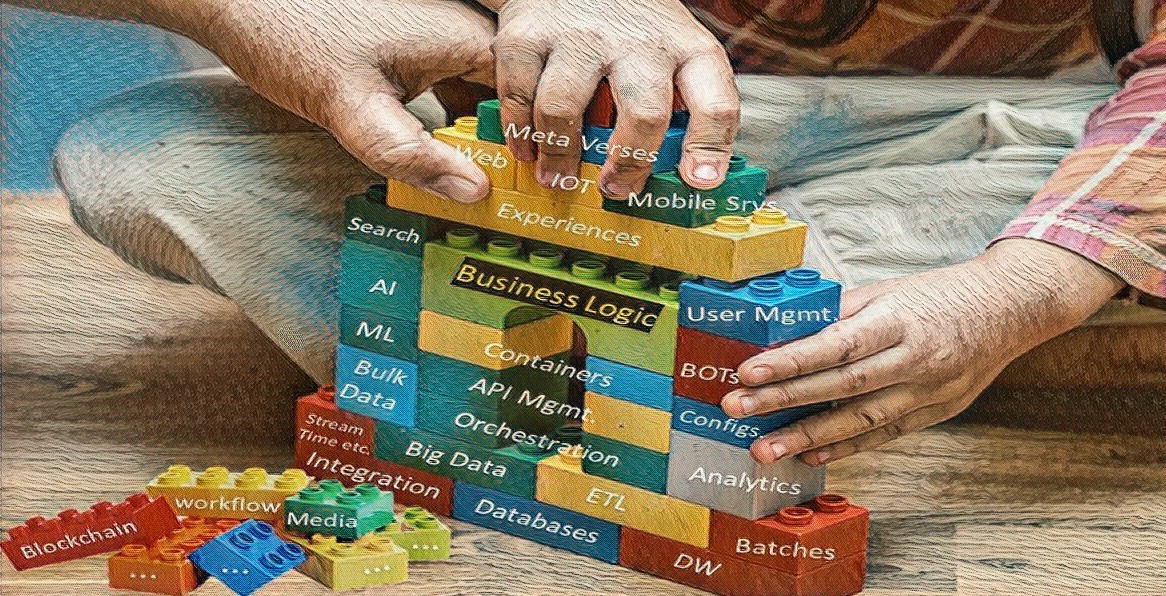
Cloud Assembly Language - The Ultimate Low-Code Manifest.
My programming career started with Beginners All Purpose Symbolic Instruction Code (BASIC) and rapidly progressed to Dbase, FoxBASE, FoxPro, Visual FoxPro, and finally Visual Basic to find my favorite. I felt so empowered knowing VB that I could conquer the world with it however I always encountered what I considered an élite group of programmers that like a Neo in the movie Matrix had found superpowers in low level assembly languages and I doubted my choices.
In retrospect, I do not regret continuing to learn abstracted languages like VB and other newer programming languages and frameworks that evolved. I still consider myself hands on and see an obvious benefit from learning what I would like to call Cloud Assembly Language today if I were to begin my full stack IT career.
Among the next few years, I anticipate that the new generation of applications will be pretty sophisticated, with programmers just designing for differentiation and the vast majority of them being assembled (hence the name Cloud Assembly Language) from a huge library of cloud native components that will go beyond just management, utilities, and services into purpose-built components with predefined templates for various industries.
Amazon Web Services, Azure, Google Cloud Platform, Oracle, IBM, and others, are investing heavily to gain sovereignty over next-generation cloud applications. As hyperscalers add native components to their respective platforms, you will notice a trend of native cloud components replacing traditional options as they rapidly develop and add them.
Cloud native components from major hyperscalers as it stands today includes AI and machine learning, Big data and analytics, Time series, Data orchestration / ETL, Batch processing, Containers and container orchestrators, Server-less computing, Databases, DevOps and application monitoring, Internet of things (IoT), Management and governance, Messaging and events, Mobile services, Security, identity, and access, Web applications and a few purpose build solutions around industries like Healthcare, Supply chain, manufacturing, finance etc.
The Hyperscalers Platform teams will keep on improving the platform, while the Hyperscalers industry teams will rapidly add industry specific features, templates, business processes and workflows over the cloud platforms to make application assembly a truly low code experience and significantly reduce technical debt.
Additionally, I anticipate that we will see a reduction in the seemingly limitless options we have today for DevOps, API management, orchestration, automation, monitoring, AI, ML, etc. to only a few options offered natively by the cloud providers with a notional option to use third party solutions (just to keep the ecosystem alive). Hyperscalers are likely to acquire promising cloud enablement solutions in the process and make them their native offerings.
I am enjoying the exciting evolution of app assembly and enterprise wide low code paradigm as the hyperscalers' grand plans unfold in real time. Would love to know your thoughts in the comments.
Disclaimer: The views and opinions expressed in my article represent my own views and not those of any of my current or previous employer or other organizations.



Solution & Practice Leader | Healthcare & Life Sciences
1yYes, agreed that the Hyperscalers will keep enhancing their offerings (industry specific or generic) and continue to abstract and hide the lower-level complexities from the developers. They may focus on offering the most commonly used/ needed functionalities out of the box. E.g., most of the Healthcare cloud offerings from different Hyperscalers are focused on care management, basic Health data models and interoperable API connectivity. They may leave out the other functionality to be covered through their app or data marketplace or best in class partner products/ services.
Research. Scientific Coding. Teaching.
1yManish Mehta 👍🏽
I help Healthcare Businesses stay resilient & competitive through Digital Transformation. #TeamEviden
1yAn insightful read, Manish. On a side note, it will be interesting to see how this will pan out for s/w developers & industry in the long run. Some context here- when robotic surgeries started getting mainline, it was noticed that trainee surgeons lost critical hands-on for the pre-op, operation & post-op work(which in traditional surgical procedures would have been the norm)- the Robo turned them into mere spectators. Trainees specialized in robotics at the expense of hands-on skills still required in emergencies. The simulator industry gained though :-) I could have totally misread this.